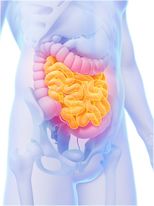 I am seeing more and more patients in my practice affected by autoimmune disease. Some of the more common autoimmune diseases I encounter are Hashimoto’s thyroiditis (a form of hypothyroidism), Graves' disease (a form of hyperthyroidism), Celiac disease (a strong intolerance to gluten), psoriasis (autoimmunity affecting the skin) and rheumatoid arthritis (autoimmunity affecting the joints). There are also some conditions that are not commonly thought of as autoimmune, but may have an autoimmune component and therefore fall on the autoimmune spectrum, including eczema and endometriosis. An interesting question to ask is: What do all these conditions have in common? What Is Autoimmunity? Autoimmunity literally means that your immune system is reacting to components of your own body as if they were foreign invaders! As your immune system develops during infancy, it is trained to differentiate self from non-self, so that it can accurately distinguish what can be harmful to you and what isn’t. Unfortunately, with autoimmunity, the immune system becomes confused and starts to attack self. The 3 Major Contributors To Autoimmune Disease Most people come and see a healthcare practitioner only after they have had symptoms of autoimmune disease for a while, making it difficult to pinpoint and study the origin of autoimmune disease. However, because of the growing incidence of autoimmune disease in North America, there has been more interest recently to study this in more depth. It has been found that there are 3 main triggers for autoimmune disease (Campbell, 2014; Ballantyne, 2013):
Various environmental factors can also trigger autoimmune disease. These include bacterial and viral infections (that result in the formation of autoantibodies because the bacteria or viruses’ proteins look similar to our own proteins), heavy metals, chemical toxicants, silicone breast implants, emotional stress, vitamin and nutrient deficiencies, and drugs (Campbell, 2014; Ballantyne, 2013; Myers, 2015). Last but not least of the 3 known triggers is a leaky gut (aka increased intestinal permeability). This is perhaps THE most important trigger. The current research suggests that leaky gut is a NECESSARY precursor to autoimmune disease! That means that, even if you have the genetic susceptibility and an environmental trigger but if your gut barrier is intact, you won’t develop autoimmune disease. Isn’t that great news? The current research suggests that leaky gut is a NECESSARY precursor to autoimmune disease! What Is “Leaky Gut”?
Your gut is a continuation of your skin inside of you, and as such, it functions as a barrier between the outside world and the inside world. Therefore, to work properly, it can’t just let anything through into the bloodstream. There are tight junctions between each cell of the gut lining preventing most things from reaching the bloodstream before they are properly digested. Also, a huge part of your immune system is found right within the tissues surrounding the gut, sampling what’s coming in and making sure it’s “safe”. Beyond your own cells, the beneficial bacteria in your gut are also essential for proper digestion and immunity, and also act as a line of defence to prevent pathogens from getting through. When your gut barrier becomes compromised and hyperpermeable, it allows food particles and pathogens through which shouldn’t be there. A gut can become leaky through (Ballantyne, 2013):
What Can You Do To Help Repair A Leaky Gut? Fortunately, there are many things you can do to help heal a leaky gut! It does require a lot of work, since no supplement can replace improving your diet and lifestyle. Avoiding some of the food triggers that damage the gut and replacing them with whole, unprocessed foods is extremely important for lasting changes. You can identify your food triggers through a specific elimination diet. IgG food sensitivity testing can also be helpful to guide you in avoiding foods that are causing the most damage in your case. Supplements to help eliminate toxins and heal the gut lining are also very important, but you need to eliminate the triggers first before supplements can do their job properly. Stool testing can identify if you have an imbalance in your good gut bacteria. Stress management is also critical in helping your gut heal. A chronic leaky gut can also lead to malabsorption of vital nutrients that are necessary to help your gut heal, so I often do some testing to target supplementation to what each specific patient needs. Re-inoculating the gut with specific probiotics is also very important. I have seen many patients’ health improve after we implement an individualized protocol based on these principles. The changes can sometimes be very dramatic! If you are suffering from an autoimmune condition and are ready to make some diet and lifestyle changes, I invite you to come on in for an initial assessment. I’d love to help you! Now, I’d like to hear from you! What autoimmune condition have you struggled with? Have you seen dietary and lifestyle changes make an impact on your health? Can you identify with some of the triggers I’ve mentioned? In health, Dr. Tamar References Ballantyne, S. (2013). The Paleo Approach: Reverse autoimmune disease and heal your body. Las Vegas, Nevada: Victory Belt Publishing. Campbell, A. W. (2014). Autoimmunity and the Gut. Autoimmune Diseases, 2014, 1-12. doi:10.1155/2014/152428 Myers, A. (2015). The Autoimmune Solution: Prevent and reverse the full spectrum of inflammatory symptoms and diseases. New York, New York: Harper One. Image 1 copyright: <a href='http://www.123rf.com/profile_sph1410'>sph1410 / 123RF Stock Photo</a> Image 2 copyright: <a href='http://www.123rf.com/profile_eraxion'>eraxion / 123RF Stock Photo</a>
0 Comments
Many people go for decades without realizing that foods they consume on a daily basis are harming them. I’m not only talking about fast food here. I’m referring to nutritious and healthy foods, such as the boiled egg you had this morning, or the tofu you had in your vegetarian burger.
A food sensitivity is not as severe as a food allergy. Because of this, most people dismiss the idea that their symptoms of gas, bloating, diarrhea, fatigue, irritability, headaches, recurrent infections, or skin rashes could be related to the food they consume. In response to a regular food allergy, the body produces an antibody (IgE), which causes extreme and immediate symptoms which are hard to miss. On the other hand, food sensitivities cause the production of a different type of antibody (IgG), which leads to milder symptoms which can take as long as 72 hours from the time of ingestion to be noticed. The most common food sensitivities are to gluten, dairy, yeast, eggs, corn, and soy. If I suspect a patient has food sensitivities, I give them one of two options. The first is to follow a hypoallergenic diet for 2-3 weeks, and then systematically re-introduce the suspected foods one at a time and watch for a reaction. The other is to do a blood test which will detect the level of IgG antibodies produced in response to different foods. Your naturopathic doctor can help you decide which approach is best for you. |
AuthorDr. Tamar Ferreira is a Naturopathic Doctor in Brampton, Ontario. Her areas of focus include digestive health, hormone balance, and skin conditions. Topics
All
Archives
May 2020
|
118 Queen St. W., Suite 205
Brampton, ON
L6X 1A5
905-451-3963




 RSS Feed
RSS Feed